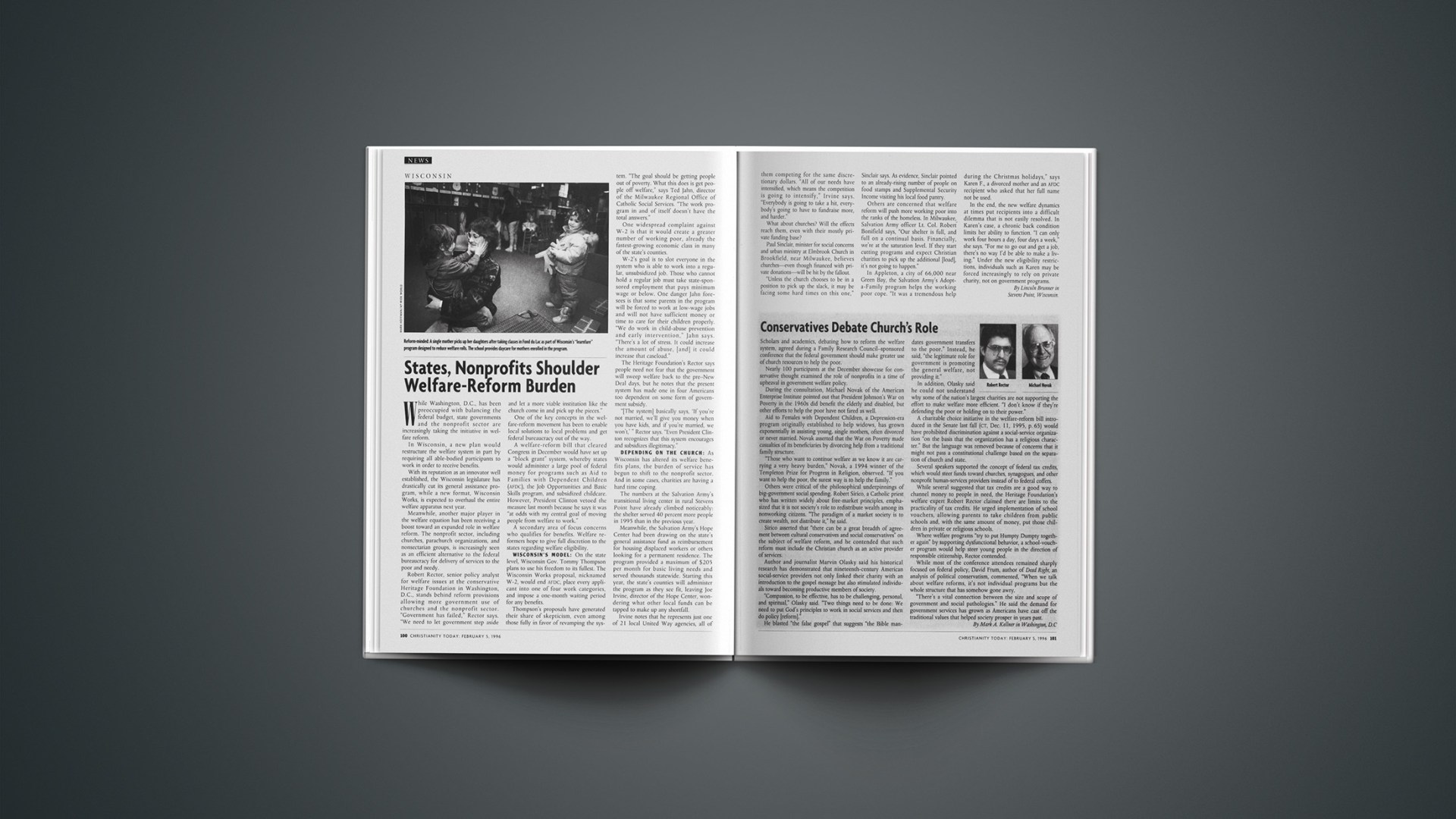Scholars and academics, debating how to reform the welfare system, agreed during a Family Research Council-sponsored conference that the federal government should make greater use of church resources to help the poor.
Nearly 100 participants at the December showcase for conservative thought examined the role of nonprofits in a time of upheaval in government welfare policy.
During the consultation, Michael Novak of the American Enterprise Institute pointed out that President Johnson’s War on Poverty in the 1960s did benefit the elderly and disabled, but other efforts to help the poor have not fared as well.
Aid to Females with Dependent Children, a Depression-era program originally established to help widows, has grown exponentially in assisting young, single mothers, often divorced or never married. Novak asserted that the War on Poverty made casualties of its beneficiaries by divorcing help from a traditional family structure.
“Those who want to continue welfare as we know it are carrying a very heavy burden,” Novak, a 1994 winner of the Templeton Prize for Progress in Religion, observed. “If you want to help the poor, the surest way is to help the family.”
Others were critical of the philosophical underpinnings of big-government social spending. Robert Sirico, a Catholic priest who has written widely about free-market principles, emphasized that it is not society’s role to redistribute wealth among its nonworking citizens. “The paradigm of a market society is to create wealth, not distribute it,” he said.
Sirico asserted that “there can be a great breadth of agreement between cultural conservatives and social conservatives” on the subject of welfare reform, and he contended that such reform must include the Christian church as an active provider of services.
Author and journalist Marvin Olasky said his historical research has demonstrated that nineteenth-century American social-service providers not only linked their charity with an introduction to the gospel message but also stimulated individuals toward becoming productive members of society.
“Compassion, to be effective, has to be challenging, personal, and spiritual,” Olasky said. “Two things need to be done: We need to put God’s principles to work in social services and then do policy [reform].”
He blasted “the false gospel” that suggests “the Bible mandates government transfers to the poor.” Instead, he said, “the legitimate role for government is promoting the general welfare, not providing it.”
In addition, Olasky said he could not understand why some of the nation’s largest charities are not supporting the effort to make welfare more efficient. “I don’t know if they’re defending the poor or holding on to their power.”
A charitable choice initiative in the welfare-reform bill introduced in the Senate last fall (CT, Dec. 11, 1995, p. 65) would have prohibited discrimination against a social-service organization “on the basis that the organization has a religious character.” But the language was removed because of concerns that it might not pass a constitutional challenge based on the separation of church and state.
Several speakers supported the concept of federal tax credits, which would steer funds toward churches, synagogues, and other nonprofit human-services providers instead of to federal coffers.
While several suggested that tax credits are a good way to channel money to people in need, the Heritage Foundation’s welfare expert Robert Rector claimed there are limits to the practicality of tax credits. He urged implementation of school vouchers, allowing parents to take children from public schools and, with the same amount of money, put those children in private or religious schools.
Where welfare programs “try to put Humpty Dumpty together again” by supporting dysfunctional behavior, a school-voucher program would help steer young people in the direction of responsible citizenship, Rector contended.
While most of the conference attendees remained sharply focused on federal policy, David Frum, author of “Dead Right,” an analysis of political conservatism, commented, “When we talk about welfare reforms, it’s not individual programs but the whole structure that has somehow gone awry.
“There’s a vital connection between the size and scope of government and social pathologies.” He said the demand for government services has grown as Americans have cast off the traditional values that helped society prosper in years past.
Copyright © 1996 Christianity Today. Click for reprint information.










